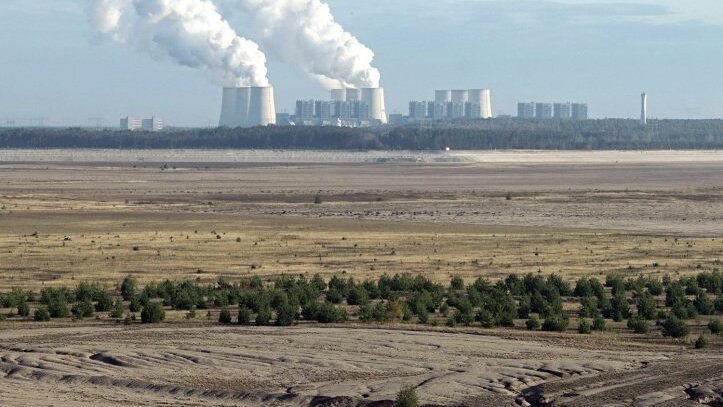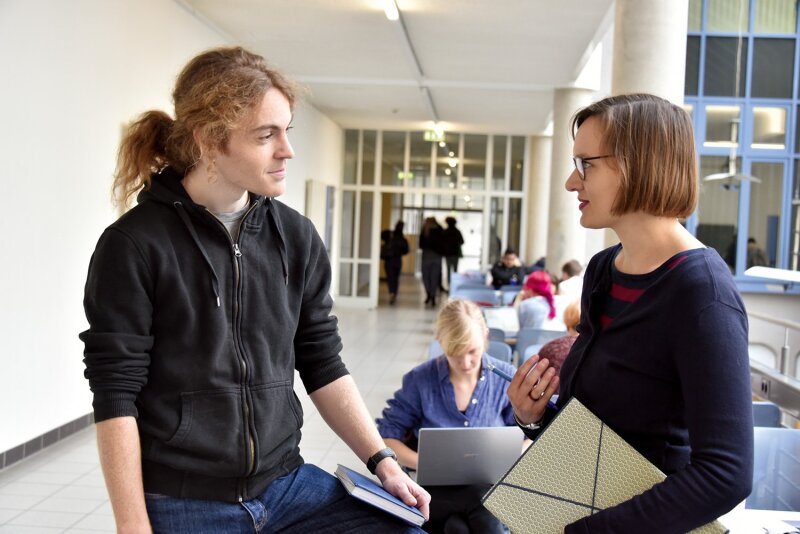
If we want to stop climate change and limit global warming, we will have to significantly reduce our CO2 emissions. This view has become the general consensus. We have decided to phase out coal-fired electricity generation by 2038, and a growing amount of the power we consume is now generated from renewable sources. However, this movement is also being met with resistance, particularly in the coal mining regions themselves. Sociologists have undertaken a »deep drilling operation« in the lignite district of Lusatia to get to the bottom of this scepticism.
The Commission for Growth, Structural Change and Employment—commonly referred to as the »Coal Commission«—has proposed the decommissioning of coal-fired power plants in Germany by 2038. The country’s last lignite mine is scheduled to be closed down seven years before. This will set major
changes in motion, particularly in Lusatia, as many local workers, companies, and municipalities currently depend on this industry. This will not only affect economic sectors; society itself will also be hit. Like in a burning glass, we can observe the first transformation conflicts in eastern Brandenburg, which are forming in our society as a result of the economic changes caused by the fight against climate change.
The miners’ pride in coal is the »backbone of Lusatia«
Given the status of coal as the local mining community’s pride and joy, scientists from various German research institutes were encouraged and financially supported by the Rosa Luxemburg Foundation to investigate post-coal alternatives for structural change in Lusatia. On the one hand, they carried out quantitative and statistical analyses of the local economic situation and the associated future prospects—not least for the labour market. On the other hand, sociologists from the University of Jena conducted a qualitative partial study, asking workers at a local mining company and energy provider (LEAG GmbH) for their thoughts on the country’s phase-out from coal-fired power generation. For their »sociological deep drilling operation«, as described by project leader Klaus Dörre, the team interviewed 20 employees from all corporate levels in Lusatia.
The interviewees painted a relatively homogeneous picture of great scepticism towards the initiated coal phase-out—and for very different reasons. »There is a general sense of affiliation with coal and the mining profession. Mining has shaped traditions and families for several generations,« says Jakob Köster, who is part of the research team. »This producer’s pride can be felt throughout the company. One of our interviewees described coal as the ›backbone of Lusatia‹«. The departure from coal is therefore seen as a considerable deterioration of the worker’s importance. Furthermore, the good working conditions and relatively high wages ensure a great identification with their employer. The employees may have occasionally criticized their own company for failing to proactively tap into new business areas, but they generally have a very tight relationship with the works council and management, says work sociologist Köster.
Many employees are also critical of the country’s phase-out from coal-fired power generation, because they mainly consider it to be a hasty, politically motivated, and technically unsound decision that is practically impossible to implement without jeopardizing the security of the power supply. They believe the departure from lignite-based power generation is premature, because alternatives are yet to be fully developed. The majority of respondents expressed understanding for the reasons behind the coal phase-out and do not want to be considered »Luddites«. »Just because I work in the coal sector doesn’t mean I deny climate change,« said one of the workers. However, the workers disagree with the schedule, as there had previously been plans to significantly reduce mining by the 2040s. Only a minority of respondents expressed general doubts about man-made climate change, dismissing the associated discourse as ideological. Their criticism was not only directed against political decision-makers; they also accused the media—especially the local and regional press—of writing negative reports about coal and therefore not representing the interests of the local area.
The local perception of structural change is shaped
by German reunification
The interviewees mainly see the impending structural change as a negative development, because it reminds them of their experience following German reunification. »This period is still fresh in their collective memory,« explains Sophie Bose, who conducted the interviews with Köster and other colleagues. »Everybody knows someone who lost their job and never recovered«. Nevertheless, only a few respondents fear for their own jobs, as they will have already retired by 2038. But after the closure of many factories and the dismantling of entire sectors, such as the textile industry in the 1990s, there is a general fear that history might repeat itself and bring about the further decline of the region. »When the coal is gone, there will be nothing left—we heard that from a lot of respondents,« says Bose.
Many people’s livelihood is at stake
A sense of social neglect is being projected on the local region and individual living environments. The locals’ affiliation and connection with their region is now clashing with deteriorating social structures. »Relationships based on familiarity as opposed to selfish and aggressive mindsets and the pursuit of personal gain are a central component of popular beliefs on good living,« write the sociologists in their evaluation. »If Lusatia is neglected, many respondents will begin to question their understanding of good living«.
The sociologists rounded off their impression of the situation in the summer of 2019 by interviewing people »on the other side« of Lusatia. This study is currently being evaluated. Some of the interviewees included local politicians, environmentalists, activists, and those directly affected by the effects of mining, such as residents who are scared of losing their homes to the mining sector. The views expressed by these respondents may have clashed with the attitudes communicated by the miners, but they did not devalue their past achievements. »Coal has had its day. That does not mean everything was bad,« says Sophie Bose, paraphrasing one of the respondents. »This is a view that could reunite the region«. And there seems to be an urgent need for such unity. The second group of respondents in particular reported a clear social divide, whereby villagers were no longer talking to one another and social life had come to a standstill in places.
In addition to facts and figures, such subjective assessments illustrate the socioecological transformation conflicts associated with structural change. Lusatia is representative of other regions and sectors; structures will also change in the automotive industry, and regions that are heavily dependent on it might bear witness to similar developments. That is why it is important to involve the local population in good time. »During our interviews, we were often told that people like to be heard,« says Bose. »They should be able to actively shape processes of change.«
By Sebastian Hollstein
Sophie Bose and Jakob Koester
Image: Anne Günther (University of Jena)Original publication (in German): Nach der Kohle. Alternativen für einen Strukturwandel in der Lausitz (2019), www.rosalux.de/publikation/id/40518/nach-der-kohle/External link
